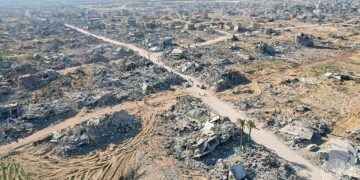May 21, 2024
An Iranian hard-liner passes from the scene. What happens next?

On Sunday, Ebrahim Raisi, Iran’s ultraconservative president, was flying home after participating in the opening of a new dam near the Iran-Azerbaijan border. But shortly after takeoff, Raisi’s helicopter went down in a mountainous area of the Iranian countryside. Once rescue teams were able to reach the crash site, it was clear that Raisi and all those aboard, including the Iranian foreign minister, were dead.
Taken in isolation, Raisi’s death would appear to be a major event. Raisi, after all, was the top elected official in Iran, so his removal will have at least a short-term effect on how the Iranian government operates. But the system that has ruled Iran since 1979 will find a way through this setback and churn on. According to the Iranian constitution, Raisi’s first vice president will be elevated to the presidency in an interim capacity, and elections will be organized in 50 days.
Notables of the Iranian state will mourn the loss, but it’s hard to overstate just how ruthless Raisi was. He was an Islamic Republic insider through and through, a highly conservative jurist who joined the country’s judicial system at the age of 25. Raisi rose quickly, becoming the deputy prosecutor for Tehran and eventually serving on a panel focused on the charging and sentencing of dissidents. Colloquially known as the Death Committee, Raisi and his colleagues sentenced approximately 5,000 people to death, a fact that hurt Raisi’s reputation when he ran for president against incumbent Hassan Rouhani in 2017. Raisi, however, was unapologetic about his role and insisted he did his duty in service of the Islamic Republic’s system of government.
More on Middle East

Featuring Rosemary Kelanic
October 16, 2025
Events on Iran








